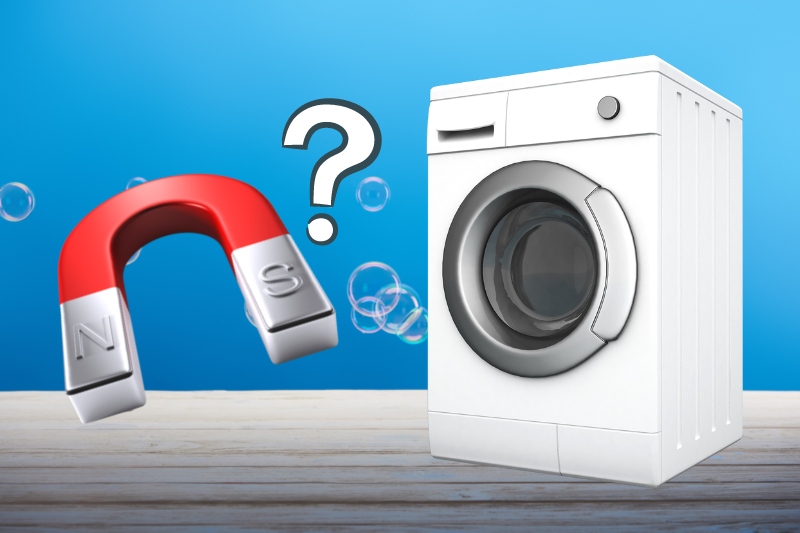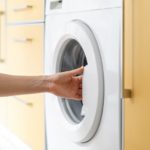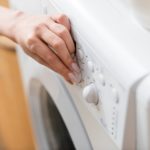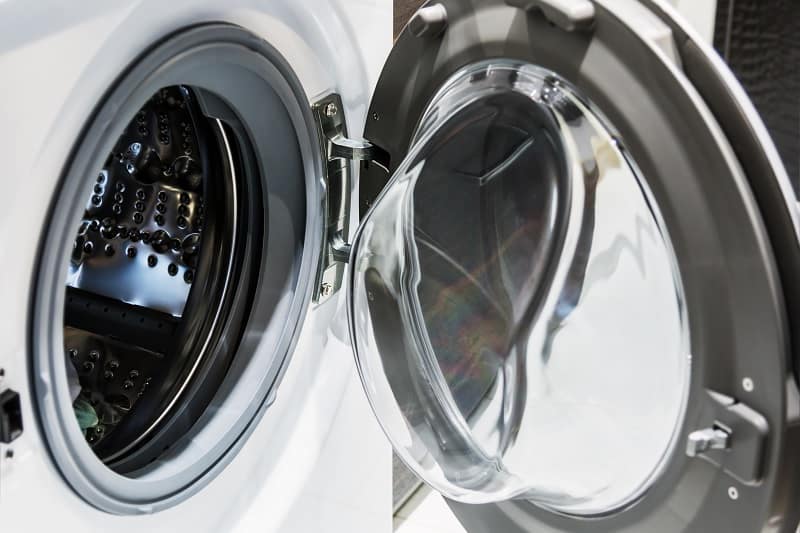Washing machines are clever things, aren’t they? They perform an incredibly useful function and take a load (ho ho) off our hands.
But how do they work? OK, they get the washing wet and then kind of jiggle it about in the detergent, then rinse, spin and drain. That’s all clear.
But what enables them to do this stuff? You may be surprised to learn that a lot of it is down to magnets.
Read on to find out exactly what marvels are done by those magnets. There—that’s attracted you! (Sorry.)
Magnets are some of the most useful components out there, without which a lot of our gadgets simply wouldn’t work, and society as we know it would pretty much fall apart. So, let’s hear it for magnets. Good. Now we can proceed.
1. Magnets Help Reduce Vibration
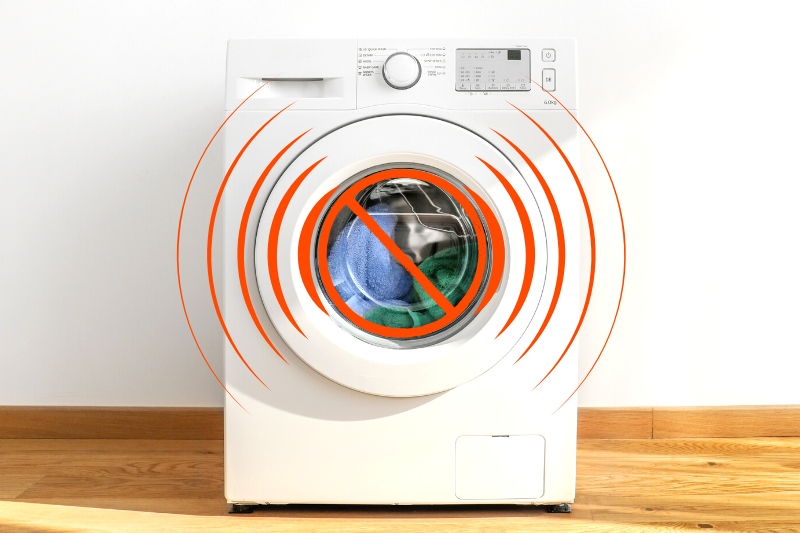
Ever wondered how that revolving drum of sopping wet clothing can turn so quietly? (Assuming you’re lucky enough to have a quiet washing machine, that is.) A lot of it is down to rare earth magnet technology.
Rare what now? Rare earth magnets. They’re super-strong magnets made from the alloys of rare earths. Rare earths are those things that are often mentioned and very few people really understand.
Be prepared to join the hallowed few. Rare earths are the 17 metals that have certain physical attributes when introduced into an electrical circuit, that makes them especially useful in the microtech industry. But not just there.
Using them to make magnets (often called neodymium magnets) results in the strongest permanent magnets it’s possible to make.
These little belters provide the rotational energy that keeps your washing machine drum spinning, and, importantly, work to resolve excess vibration, keeping the noise down.
2. Magnets Are Used to Activate the Door Locking Mechanism
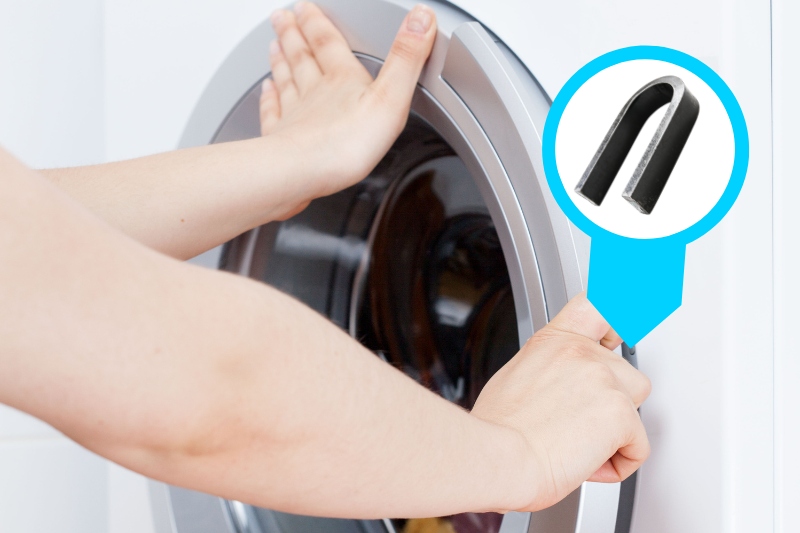
If you’ve ever had a washing machine door open while the machine’s still full of water, you’ll know that it’s fairly crucial that it stays closed until it’s nice and drained in there.
This is where something called a reed switch can be the difference between a damp pile of clothes and a seriously soggy floor.
The switch works with the use of a magnetic device, which can detect if the door is closed. When the wash cycle is selected and started, the microprocessor will check with the reed switch to make sure the door’s closed, whereupon the locking mechanism will kick into action.
3. Magnets Help Determine the Amount of Water Needed
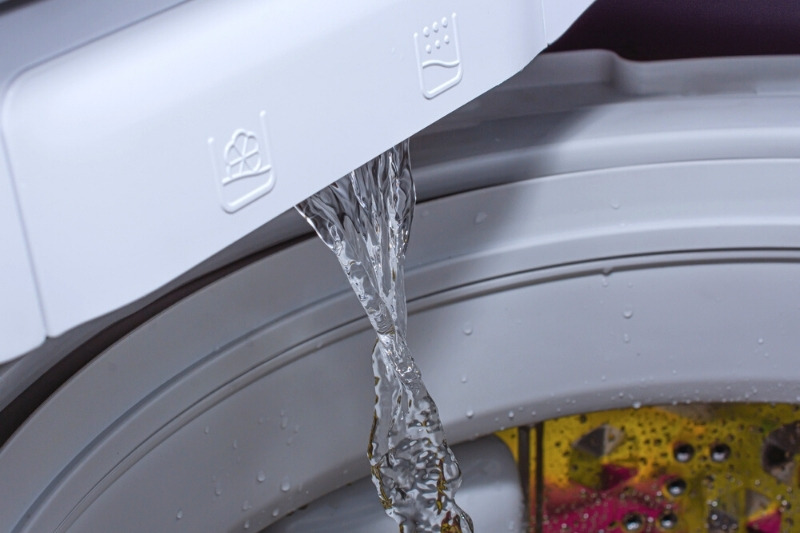
You know when the water’s pumped into the machine and it just magically knows when there’s enough water in there? How does it know? Magnets, that’s how.
Well, usually. What a lot of washing machines have is a reed float level sensor, that consists of a reed switch embedded in a float with a magnet.
The float is free to travel up and down with the overall water level, and when it reaches a certain point, this closes the electrical circuit that tells the machine to stop filling.
4. Magnets Are Used in Dials
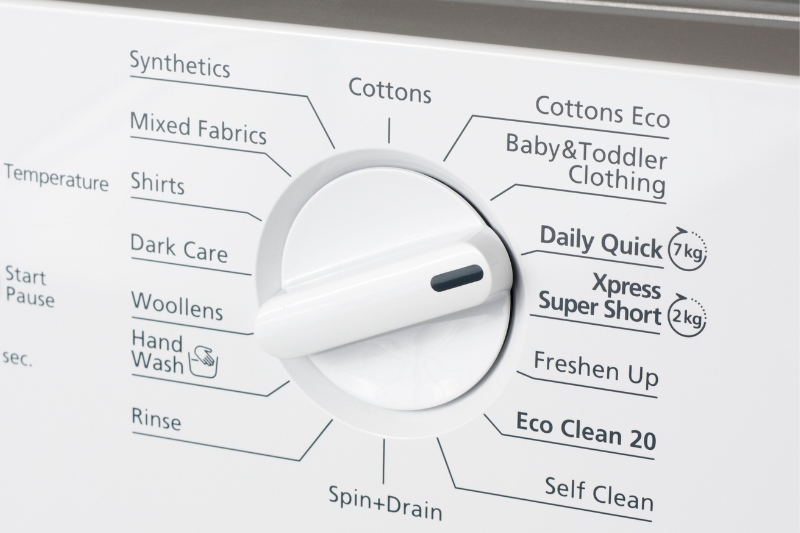
If your washing machine has a rotary programme selector on the front of the machine, it will probably operate with the use of magnets. The position of the magnet in the array tells the machine which programme is being selected.
5. Magnets Tell the Washing Machine Which Direction It’s Rotating
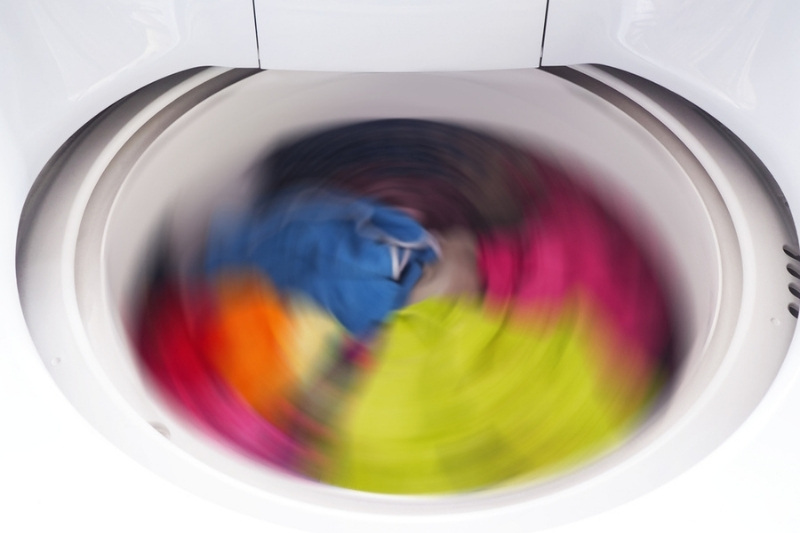
Suppose you have a machine that can spin both clockwise and anti, magnets tell the machine which direction the clothes are currently rotating.
Marvellous Magnets
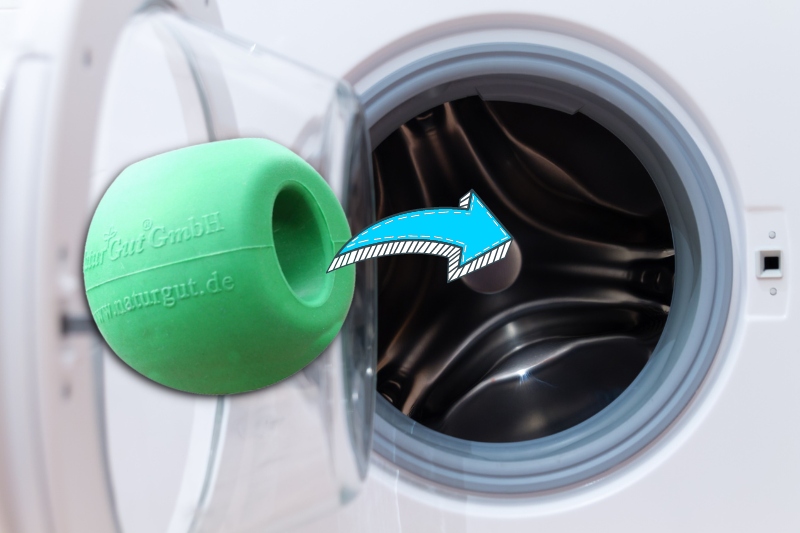
So, who knew that magnets did all that in a washing machine? Apart from any half-decent washing machine engineers reading.
But that’s not the whole story. You can also add to the number of magnets in your machine by using them to affect the water quality in there.
If you live in a hard water area and want to protect your machine from limescale without using chemicals, you could use this magnet washing ball from NaturGut. This is a bunch of magnets stuck into a rubber ball, that turns your scaly water silky soft. Reviews for it are pretty good so maybe worth a go.
Whichever way you look at it, your washing machine has a lot to thank magnets for. Which means you do too. So, let’s go with the magnetic flow and give them some positivity. Negativity’s so repellent.

Martin’s life revolves around films, dogs and food, but rarely all at the same time. At least two out of these three like to give clothes and furniture a hard time, and Martin enjoys discovering and writing about new ways to stop them doing their worst.
